
Plant Science Research Weekly - Top 20 hits of 2020
Blog, Plant Science Research Weekly, WWR Full PostMore then four years ago, we started a weekly column to highlight a few plant science articles each week. The series lauched with the name What We're Reading, but at some point was rebranded to Plant Science Research Weekly.
From early on, we've drawn on the interests and talents of the Plantae Fellows…

Plant Science Research Weekly, December 18, 2020
WWR Full PostReview: Thriving under stress: How plants balance growth and stress response
What exactly is the growth/defense tradeoff? This review is an excellent place to ask. Zhang et al. review evidence that shows that it is much more than a competition for limiting resources – the plant actively responds…
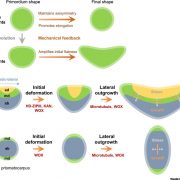
Plant Science Research Weekly: December 11, 2020
WWR Full PostReview: The mechanical feedback theory of leaf lamina formation
The contribution of microtubule orientation to the direction of cell expansion is familiar to most; when microtubules wrap around the middle of a cell like a belt, the cell expands in the perpendicular direction to become longer. Recent…
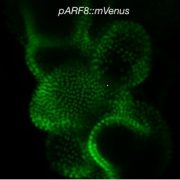
Plant Science Research Weekly: December 4, 2020
WWR Full PostReview: Organelles-nucleus-plasmodesmata signaling, and roles in plant physiology, metabolism and stress responses
Plasmodesmata (PD) are pores that connect plant cells and allow the flow of small molecules and information but also viruses. This traffic is tightly regulated, in large part by the deposition…
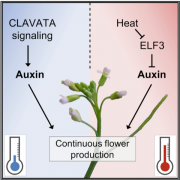
Plant Science Research Weekly: November 20, 2020
WWR Full PostReview: Integration of reactive oxygen species and hormone signaling during abiotic stress
During its life cycle, a plant experiences many types of abiotic stress including drought. While waiting for the next drops of water, a thirsty plant acclimates by initiating a series of tolerance responses.…
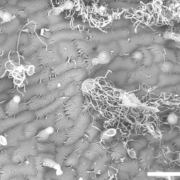
Plant Science Research Weekly: November 13, 2020
WWR Full PostReview: Homoeologous exchanges, segmental allopolyploidy, and polyploid genome evolution
Polyploidy or whole-genome duplication (WGD) is an important process in plant evolution and speciation. Additional sets of chromosomes can be derived from intraspecific genome duplication (autopolyploidy) or…
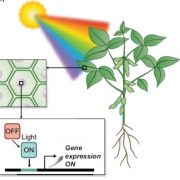
Plant Science Research Weekly: November 6, 2020
WWR Full PostReview: Optogenetics in plants
Optogenetics is the process by which light can modify cellular behavior, through the action of light-sensitive proteins or other molecules. In many respects, optogenetics seems more like science fiction than reality; the realization that neural activity in the brain…

Plant Science Research Weekly: October 30
WWR Full PostThis week’s Plant Science Research Weekly was guest-edited by Batthula Vijaya Lakshmi Vadde. She is currently a postdoc at Adrienne Roeder’s lab, Cornell University studying giant cell patterning in Arabidopsis sepals. Vijaya did her Ph.D. on trichome development in Arabidopsis with Utpal Nath from…

Plant Science Research Weekly: October 23, 2020
WWR Full PostPerspective: Multiplying the efficiency and impact of biofortification through metabolic engineering
As heterotrophs, we are what we eat. One of the UN Sustainable Development Goals is to end all forms of hunger, including the “hidden hunger” that results from nutrient deficiencies. Van Der…

